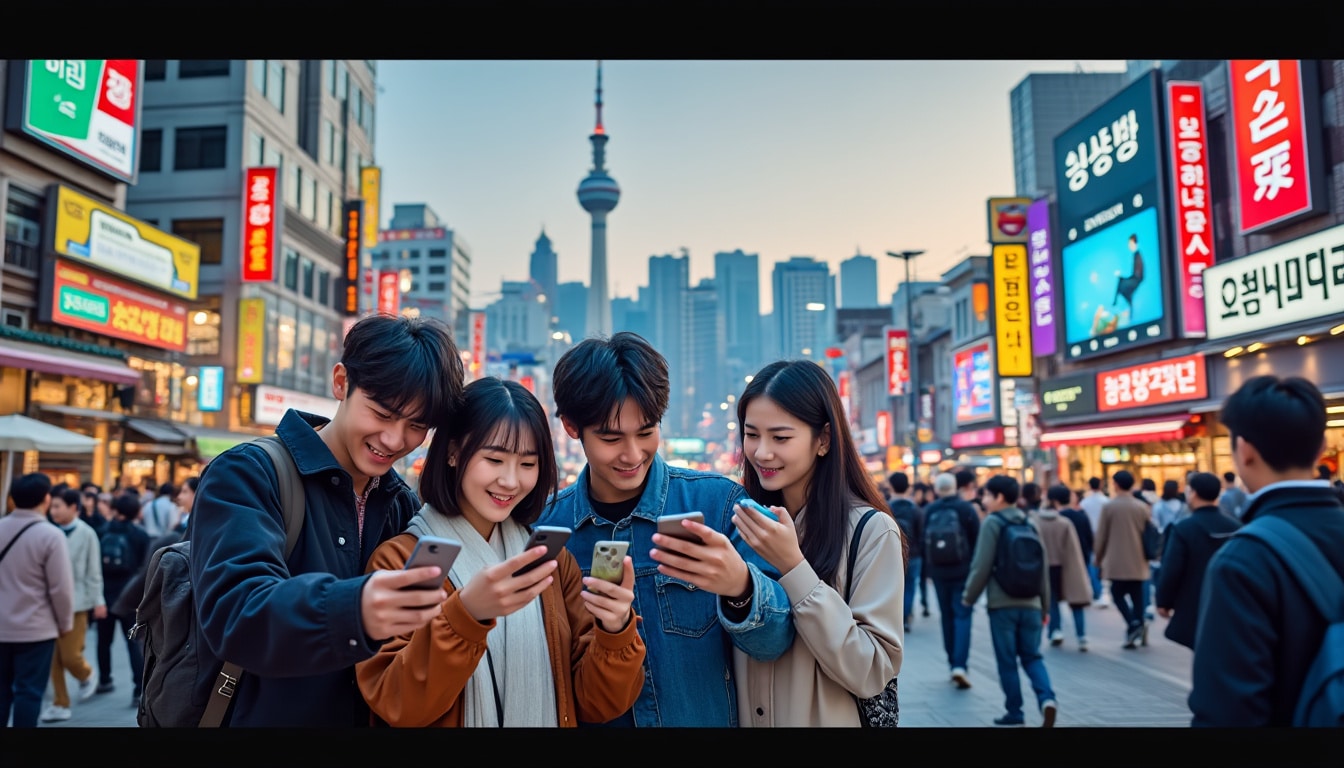As Seoul continues to thrive as a bustling metropolis that harmonizes tradition with the adrenaline rush of modernity, understanding its unique communication nuances becomes essential for every traveler and expatriate. The intricate social protocols and communication etiquettes prevalent in Seoul are not merely about words; they are a reflection of deep-seated cultural values. Knowing how to navigate these rules can transform your Seoul experience from superficial interaction to meaningful engagement. This guide will illuminate the key communication practices in Seoul, ensuring that your stay in the city is both respectful and rewarding.
The Significance of Politeness in Seoul’s Communication
At the core of Seoul’s communication etiquette is a profound respect for elders and hierarchical structures. In a city where age and authority are paramount, honoring these social hierarchies is crucial. During interactions, one is expected to use formal language, particularly when speaking to those who are older or in positions of authority. This often entails adding suffixes like “-nim” or “-ssi” to names to denote respect.
The Korean language, with its multiple levels of formality, can initially seem daunting. However, adopting the use of formal speech not only shows respect but also conveys your willingness to embrace Korean culture. Politeness is further exhibited through actions: offering your seat to an elder on public transportation or bowing slightly as a greeting reflects the deeply ingrained value of respect. Such gestures may seem small, but in Seoul, they speak volumes.
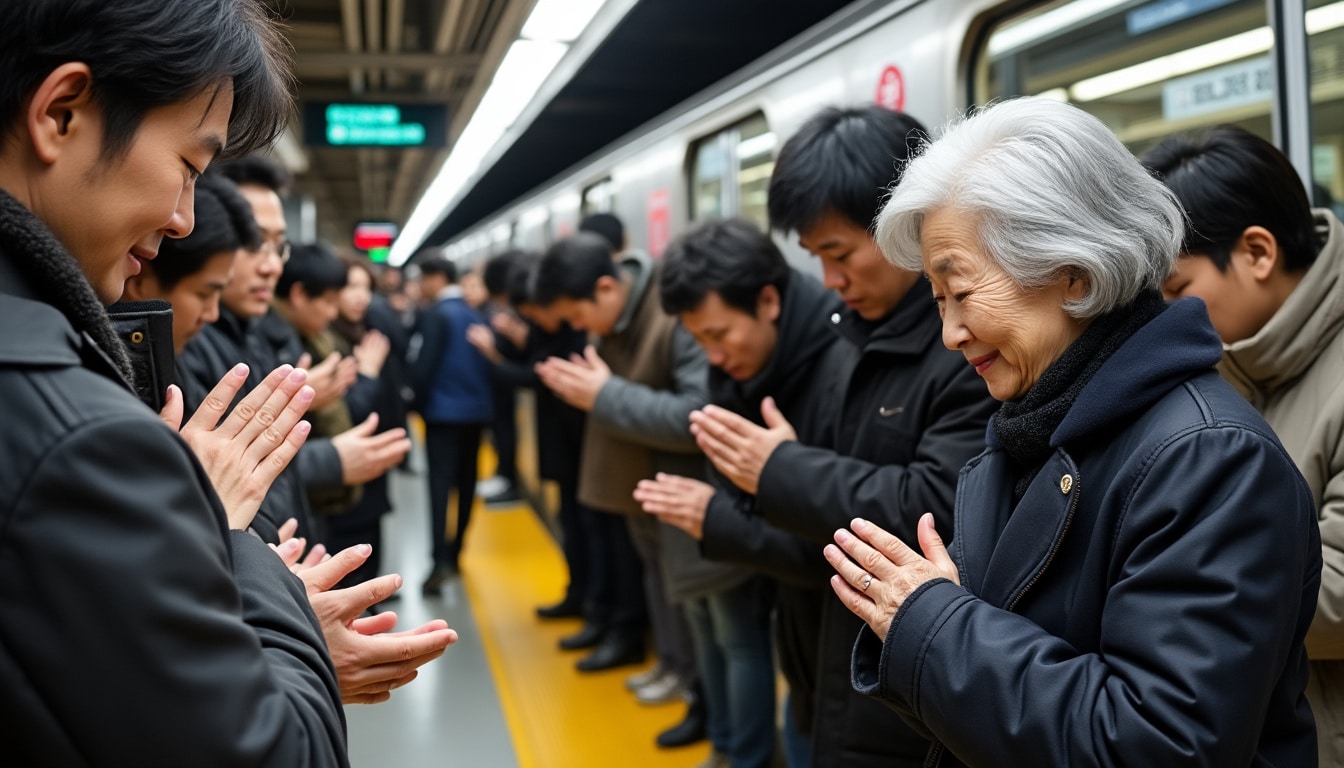
Furthermore, when involved in conversations, showing restraint in expressing excessive emotion, be it joy or frustration, aligns with Seoul’s preference for subtlety and decorum. This cultural norm is evident beyond spoken language. For instance, while raising one’s voice in public might be acceptable in various cultures, Seoul tends to value quieter public spaces. Whether on the subway, in cafes, or while walking through Seoul’s serene Han River parks, maintaining a moderate volume is appreciated.
In navigating formal situations, understanding and applying these politeness standards is crucial. It prevents miscommunications and fosters mutual understanding, paving the way for meaningful interactions.
Importance of Using Formal Speech in Professional Settings
In professional environments, using formal speech is indispensable. Whether conducting business negotiations or engaging in workplace discussions, formal language underscores professionalism and respect for hierarchy. Meeting with a business partner or colleagues often begins with formal greetings and the exchange of business cards using both hands, a gesture that signifies trust and sincerity.
- 🗣️ Formal greetings set the tone for business meetings.
- 📇 Exchanging business cards with both hands is essential in professional contexts.
- 👔 Adopting appropriate honorifics reflects respect and adherence to societal norms.
Integration of Modern Technology in Communication
In Seoul, a city known for its advanced technological landscape, digital communication tools are indispensable. From businesses to social interactions, platforms like KakaoTalk, LINE, and Naver play pivotal roles. These platforms, akin to lifelines, bridge distances and simplify communication. For expatriates and tourists, familiarizing oneself with these apps is essential as they are primary means of social connectivity and information exchange.
South Korea’s technological giants, such as Samsung and LG, have revolutionized mobile communication globally. Yet, their impact is most palpable in Seoul, where cutting-edge technology seamlessly integrates with daily life. These companies not only manufacture world-class gadgets but also spearhead the development of communication infrastructure.
Moreover, the efficiency of SK Telecom and KT Corporation ensures that the city’s connectivity is unparalleled. Walking through Seoul’s bustling streets or taking the subway, it is rare to find a place without a strong signal. Whether it’s browsing local search engines like Daum or joining virtual meetings on platforms such as Zoom or Google Meet, the infrastructure supports seamless interactions.
| Platform | Use in Seoul | Unique Feature |
|---|---|---|
| KakaoTalk | Primarily for social interactions and local updates | Voice and text translation features |
| LINE | Used for both personal and professional communications | Stickers and international calling |
| Naver | Local search engine and news platform | Integrated with shopping and maps |
As technology continues to evolve, Seoul’s residents and visitors can expect more innovations that will further intertwine digital and face-to-face communications, keeping the city at the forefront of global connectivity trends.
The Role of Technology in Navigating Seoul
Technology aids not only in communication but also in navigation. Applications that provide real-time updates about public transportation routes and timings, cultural events, and even weather conditions, are invaluable. Understanding Seoul’s time zone or checking the weather and natural risks are simplified by these digital tools.
- 🚌 Real-time public transportation updates ensure seamless city travel.
- ⏰ Time zone applications aid in planning.
- 🌦️ Weather apps provide forecasts and alert users to any natural risks like flooding.
Verbal and Non-Verbal Communication Etiquette
Communication in Seoul extends beyond spoken words to include a rich array of non-verbal cues. Body language is a critical aspect of interaction in this city. For instance, when calling for a waiter in a restaurant, subtlety is key. Use the whole hand, palm facing up, rather than pointing with a finger, which could be seen as rude.
Facial expressions and gestures are also interpreted with precision. In professional and social settings, maintaining a calm and composed demeanor is appreciated. Excessive gestures or animated expressions, commonly seen in Western interactions, may be perceived as unrefined or intrusive in Seoul.
The concept of ‘face’ (called “체면”) plays a significant role in Korean society. Maintaining one’s own dignity while respecting another’s social standing is central to all forms of communication. Losing face, as in many Asian cultures, is a serious social consequence that can affect personal and professional relationships adversely.
Importance of Non-Verbal Cues in Seoul
Understanding non-verbal communication requires a keen observation of social interactions. Here are some essential non-verbal cues to be aware of:
- 👀 Eye Contact: Maintain respectful eye contact, but avoid staring.
- 🤲 Hand Gestures: Use open palms for pointing; avoid finger pointing.
- 🌿Hands in Pockets: Keep hands out of pockets when speaking to someone, as it can be seen as dismissive.
Navigating Public and Private Communication Channels
Seoul’s communication landscape offers a blend of public and private channels, each with its own set of etiquette. In restaurants, cafes, and public facilities, maintaining a low tone is crucial. Meanwhile, private gatherings or interactions within homes often see more relaxed communication styles.
In personal spaces, communicating views and opinions tends to be more open and direct. However, even in private settings, sensitivity to topics such as politics or historical grievances remains. For foreigners, understanding which subjects to avoid can prevent awkward moments or potential conflicts.
Delving into Seoul’s rich history can provide context to these sensitive areas, helping visitors navigate conversations with more confidence.
Phone etiquette also varies in public and private spaces. While it’s common for people to speak on the phone in parks or at bus stops, using headphones can be a considerate practice to minimize disturbance to others around.
| Setting | Recommended Communication Style | Key Considerations |
|---|---|---|
| Public | Quiet and restrained | Respect others’ space |
| Private | Open but respectful | Sensitive topic awareness |
| Phone | Discreet and considerate | Use headphones |
For those planning long-term stays, engaging with locals and participating in community events can enhance understanding and adaptation to Seoul’s unique communication landscape. Whether through formal channels or personal interactions, embracing these social norms ensures a more integrated and respectful experience in this thriving city.
Essential Communication Tips for Future Expats
For those intending to make Seoul their home, here are some crucial communication tips:
- 📜 Learn basic Korean phrases to build rapport.
- 👨👩👧👦 Engage in community activities to understand cultural nuances.
- 📱 Use local tech services to stay informed about societal trends.
FAQs About Communication in Seoul
To further enhance your understanding of Seoul’s communication landscape, here are some frequently asked questions:
- How important is it to learn the Korean language? 🤔 Learning basic phrases is highly beneficial as it builds a bridge of respect and facilitates easier interactions, although many young Koreans understand English.
- Can I use English in professional settings? 🗣️ While English is commonly used in business, demonstrating effort in speaking Korean can reflect cultural respect and enhance professional relationships.
- What should I expect in terms of public transportation etiquette? 🚇 Keep your voice down, offer seats to elders, and avoid eating or making calls inside vehicles. Proper queueing is also expected.
- Are there specific off-limits topics in social conversations? 🚫 Yes, topics such as North Korea, political dissent, and historical tensions with Japan are best avoided in casual discussions unless you have a deep understanding of the context.
- Is there a different etiquette for online communication? 💻 Politeness transcends physical interactions; online, using appropriate greetings and respectful language is advisable, especially in platforms like KakaoTalk and social media.
By familiarizing oneself with these practices, both visitors and expatriates can ensure that their interactions are respectful and enriched by the cultural magnificence that Seoul offers.
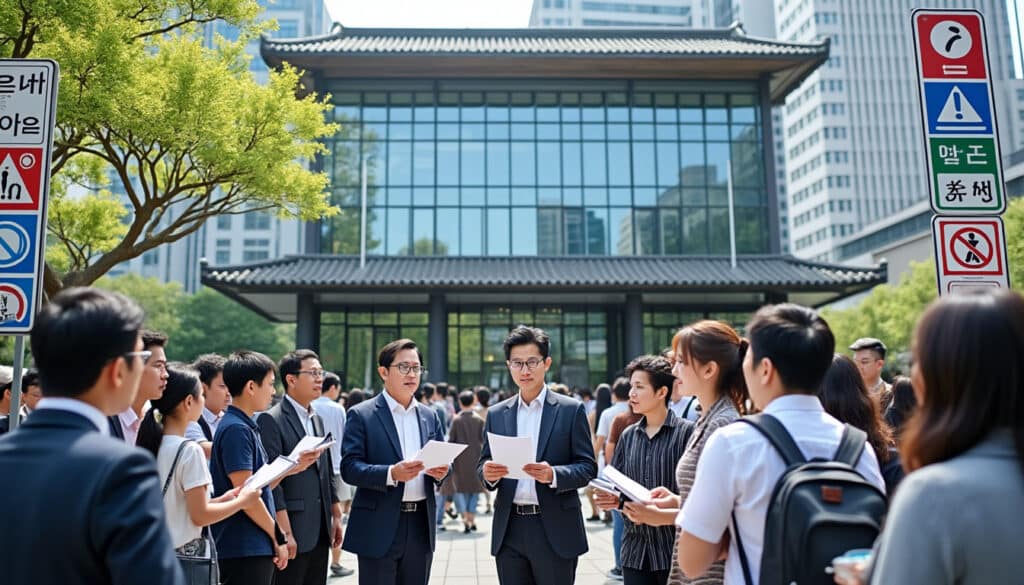
Legal Information and Rules in Seoul
Seoul, a bustling metropolis and a hub of cultural and business activities, is steeped in an intricate web of legal systems. Understanding the legal landscape here is crucial for both residents and visitors alike, as it affects everything from everyday…
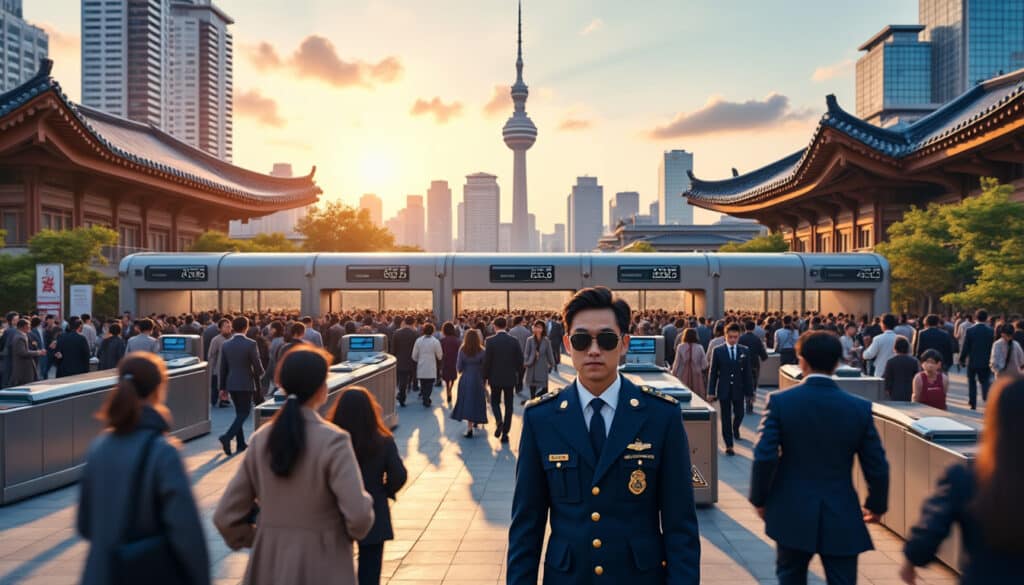
Criminal status and entry to Seoul
Exploring the prospects of traveling to Seoul can be an exhilarating journey into the heart of South Korea, a vibrant metropolis teeming with culture, innovation, and unforgettable experiences. However, for those who have a criminal record, the complexities of entering…
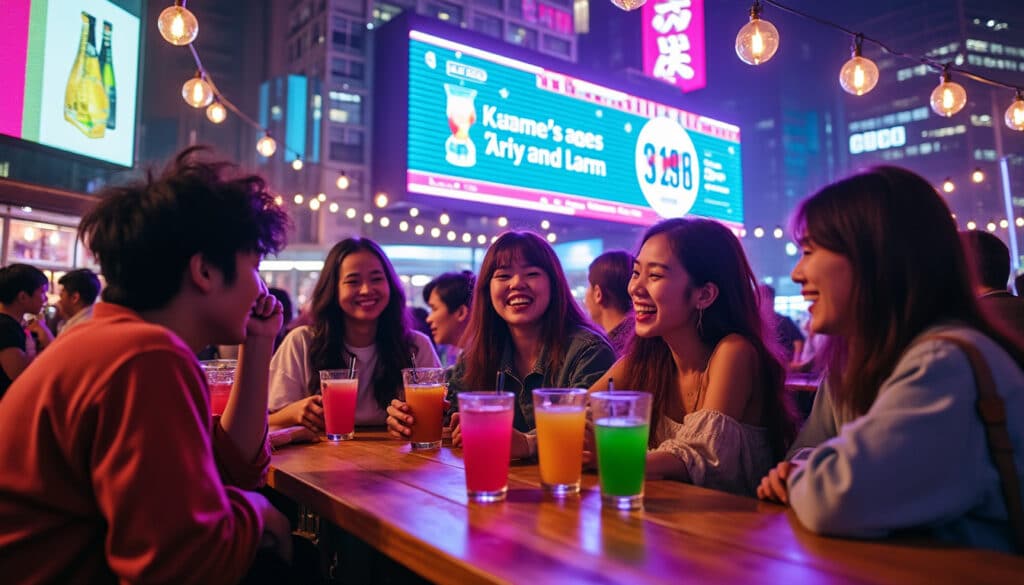
Drinking and age restrictions in Seoul
In the vibrant landscape of Seoul, where neon signs illuminate bustling streets and the aroma of street food fills the air, understanding the intricacies of age-related restrictions becomes crucial, especially for those looking to partake in the city’s dynamic nightlife.…
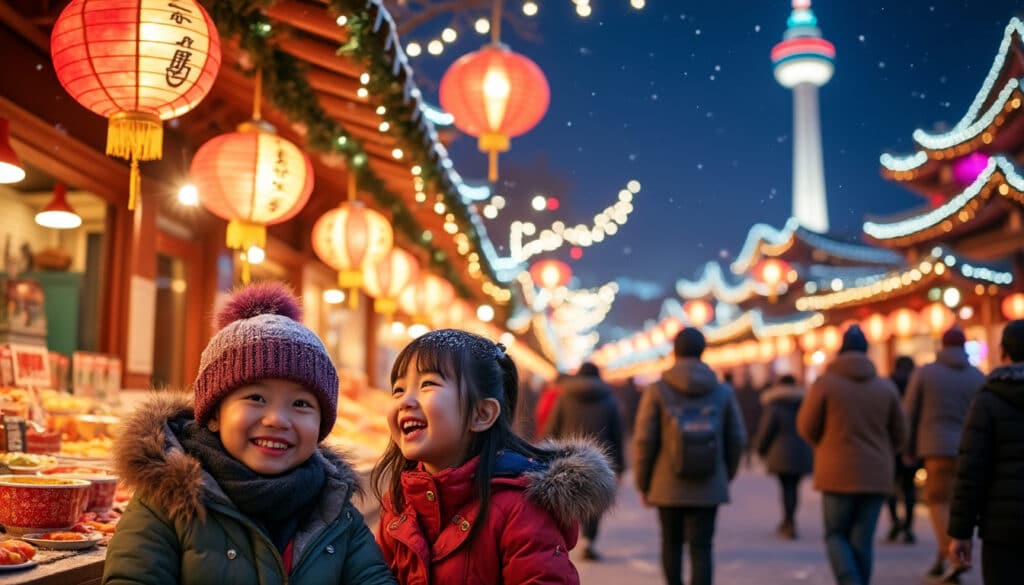
Seoul, the vibrant heartbeat of South Korea, orchestrates a symphony of cultural and historic charm throughout the year, drawing visitors from all corners of the globe. Known for its dynamic blend of tradition and modernity, Seoul’s holiday calendar is a…
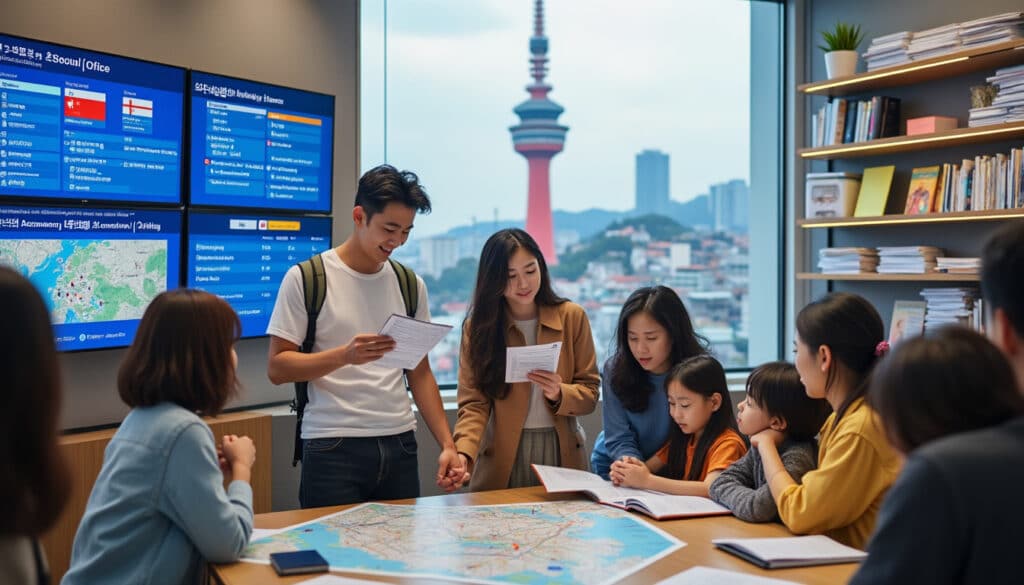
Relocating to Seoul, the bustling heart of South Korea, is a dream for many, entwined with visions of rich cultural experiences, modern innovations, and vibrant city life. However, before embarking on this transformative journey, understanding the legal and logistical intricacies…

Smoking, drugs, and red light laws in Seoul
Seoul, a city where tradition meets modernity, is not only vibrant and diverse but also strictly governed by a set of comprehensive laws, particularly when it comes to smoking, drugs, and red light districts. For those unfamiliar with South Korea’s…
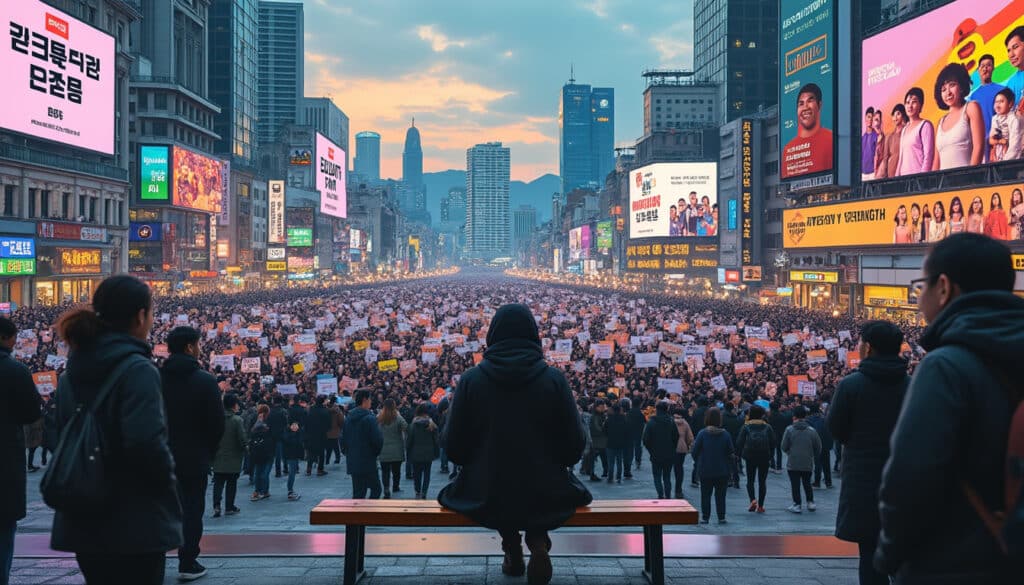
Social and discrimination issues in Seoul
The bustling metropolis of Seoul, with its towering skyscrapers and vibrant cultural scenes, is not just a hub of technology and fashion. It is also a microcosm of the broader social and discrimination issues that permeate South Korean society. From…

